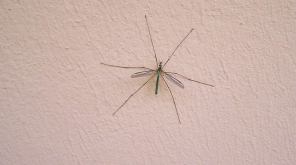ads
Human Longevity or Life Span lean on Genetics or Food Habits
Uma (Author) Published Date : Nov 09, 2018 12:31 ISTHealth News
Although a healthy lifestyle, food, regular exercises and environmental factors can promote longevity, a new genome-wide survey has ID'd genes strongly associated with living beyond a century. Lifestyle choices, particularly diet, exercise and smoking habits, play an undisputed role in determining not only how long one will live.
Studies show that Adventists, with good behaviors, have a well-documented average lifespan of 88 years, approximately eight years longer than the average U.S. citizen. For the most part, Adventists exercise regularly, are vegetarian, and don't smoke or drink alcohol.
Genetic factors can contribute to the degree of longevity in at least two important ways: An individual may inherit certain genetic variations that predispose him or her to a disease that decreases longevity; other gene variants may be the reason for disease resistance, thereby increasing it. In well-developed countries, approximately one out of every 6,000 people lives are beyond the age of 100. Supercentenarians, or individuals that are older than 110, are even rarer- only one in seven million fall into this category.
Scientists are studying people in their nineties (called nonagenarians) and hundreds (called centenarians, including semi-supercentenarians of ages 105-109 years and supercentenarians, ages 110+) to determine what contributes to their long lives. They have found that long-lived individuals have little in common with one another in education, income, or profession. The similarities they do share, however, reflect their lifestyles - many are non-smokers, are not obese, and cope well with stress. Also, most are women. Because of their healthy habits, these older adults are less likely to develop age-related chronic diseases, such as high blood pressure, heart disease, cancer, and diabetes, than their same-age peers.
Life expectancy at birth has been increasing for most of the last century in western societies, thanks to the continuous amelioration of medical assistance, to the improvement of the environment (in particular clean, safe water and food), and to the improvement of nutrients
Human Longevity or Life Span lean on Genetics or Food Habits
Related News



